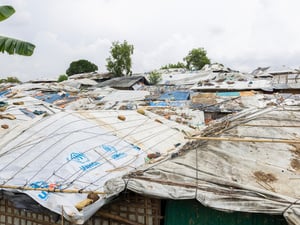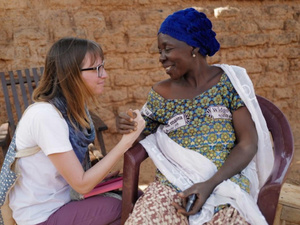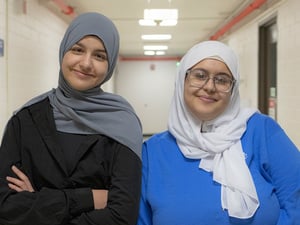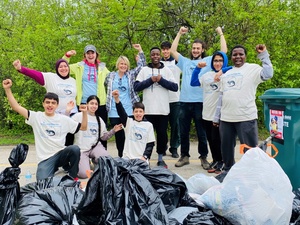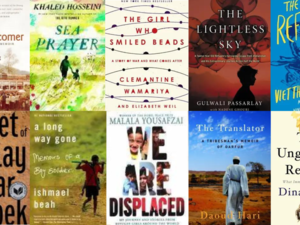Somali Bantu refugees offer new roots and bountiful harvest in Maine
Somali Bantu refugees offer new roots and bountiful harvest in Maine

Batula next to her seedlings in the greenhouse
Their journey was arduous, but their dream survived. Today, that dream has come true in Maine where Thanksgiving tables will be plentiful with local sweet potatoes, apples, squash, and other holiday delights grown by Somali Bantu refugees on the sustainable farm they started after escaping violence in their homeland and being given a chance to start a new life in the United States.
“Let’s use our skills to feed our families and friends,” is how Seynab Ali, president of the New Roots Cooperative farm nestled in the town of Lewiston, described the group’s vision of using traditional farming methods from Somalia to give back in the most tangible way to the Lewiston community that welcomed them and offered a safe place to make a fresh start.
“We are cooperative, we work together, and we meet our needs together,” Seynab said. The fresh fruits and vegetables grown on the New Roots farm, including specialty crops like okra and African eggplant are on offer every week at local farmer’s markets from spring through autumn in Lewiston, where Seynab and her refugee farmer colleagues are now regarded – and feel themselves – as natural a part of the community as anyone else.
Looking out over the sprawling, 30-acre New Roots Cooperative farm complex, Seynab recalled some of the life-threatening challenges that she and other Bantu people had to overcome when they were forced to flee Somalia to escape violent persecution and a terrifying civil war.
“To reach the Kakuma refugee camp, it took me 16 days walking from my home to the border,” she said, referring to the refugee camp in Kenya where she and her family were able to find safety. “The weather was over 100 degrees and being in a tent outside was very challenging.”
The journey from Kakuma to Lewiston would not even begin for many years – a stretch of time during which Seynab did her best to fashion a life for herself and her family in a refugee camp before being identified as one of the most vulnerable refugees in need of relocation to a safer place.
After 11 years and meticulous health and security vetting by a number of U.S. government agencies, Seynab was admitted for resettlement to the United States and eventually welcomed by the people of Lewiston.
For Jabril Abdi, also a Somali Bantu refugee who today works as one of the farmers in the New Roots Cooperative, resettlement to Maine has given him a chance to look to a future of possibility, free of the persecution he fled.
“Life in Somalia was very bad because once the government collapsed and the civil war broke out in the country, there was a lot of discrimination between Somalians and Somali Bantus,” Jabril said.
As an ethnic minority group, Bantu people were and remain vulnerable to extreme, widespread violence in Somalia. Years of structural discrimination and forced labor laws combined with increasing food insecurity during the civil war led to armed Somali clans pillaging Bantu homes, resulting in many Bantus being killed, tortured, and raped as the famine grew.
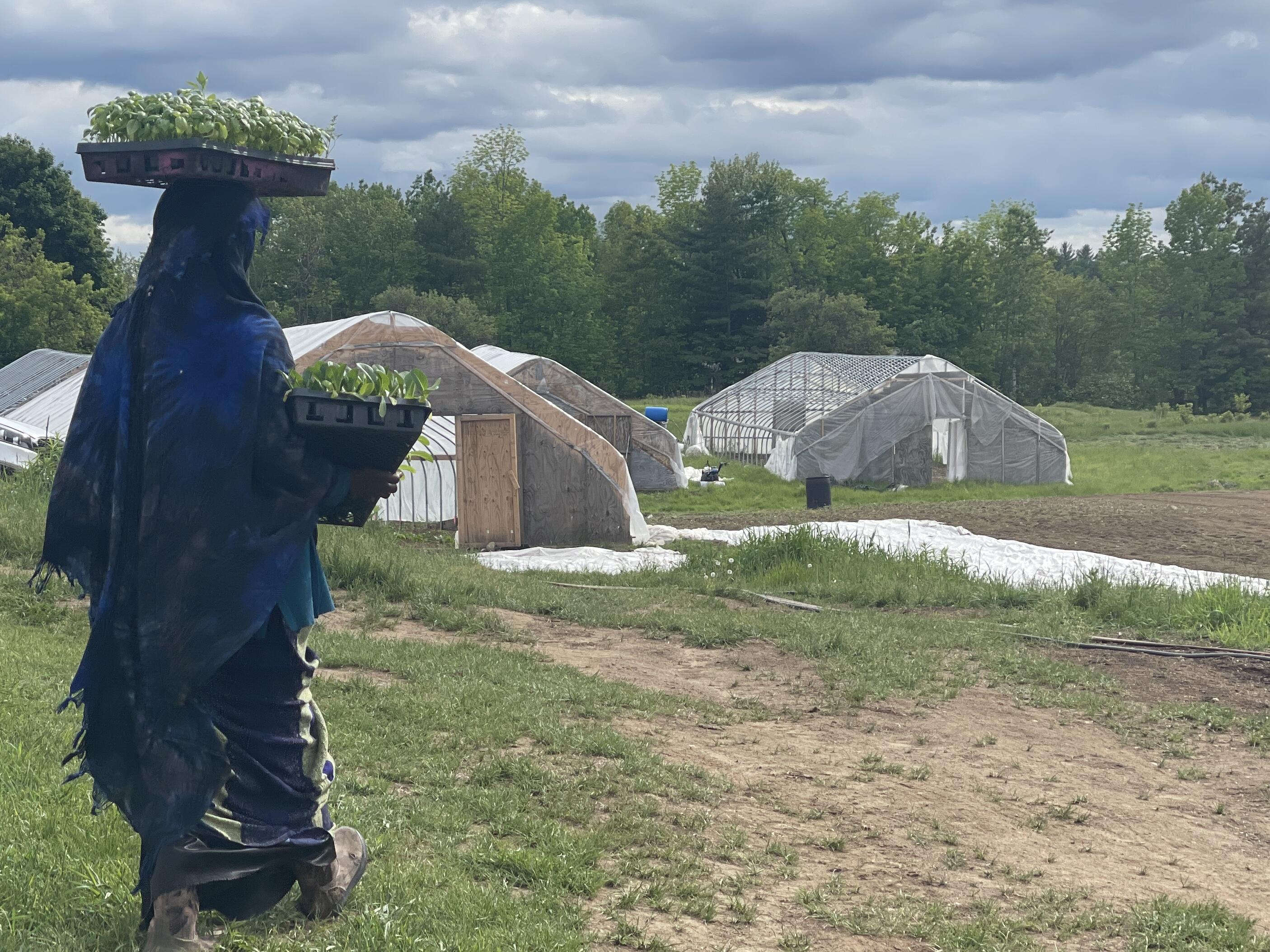
Batula, a principle New Roots farmer, heads to her greenhouse to plant seedlings.
In the late 1990’s, the U.S. government designated ethnic Bantu people as a priority for resettlement. It was then that the journey eventually leading them to Maine began.
Seynab admits adapting to life in Maine was challenging at first, not least because winter conditions in the northeast United States, in stark contrast to the climate of Somalia, limit year-round outdoor farming possibilities.
“Some of the people who move here have a deep connection to farming,” explained Yannick Bizimana, a Lewiston resident and former refugee from Burundi who now works for Cultivating Community, a local nonprofit that offers training to newly arrived refugees and other immigrants to help them adapt to their new surroundings in Maine.
“The thing is, they have been farming in a place that has a different climate, different soil, and where they can afford it, Bizimana said. “Fast forward they end up in an apartment building here. The passion for farming is still there but they can’t afford it.”
Facing that challenge, Seynab and her farm cohorts enrolled in classes with the New American Sustainable Agriculture Program (NASAP), a training program spearheaded by Cultivating Community. Soon after graduating, the group installed water wells powered by solar panels throughout the farm and built greenhouses to ensure continued crop production through the harsh Maine winters.
“The one thing that’s very dear to me and a number of people in the program is a sense of belonging. Ultimately that’s what everyone wants,” said Yannick. “Access to a piece of land, whether its half an acre or a farm, totally changes your mood, overall happiness, your mental and physical health.”
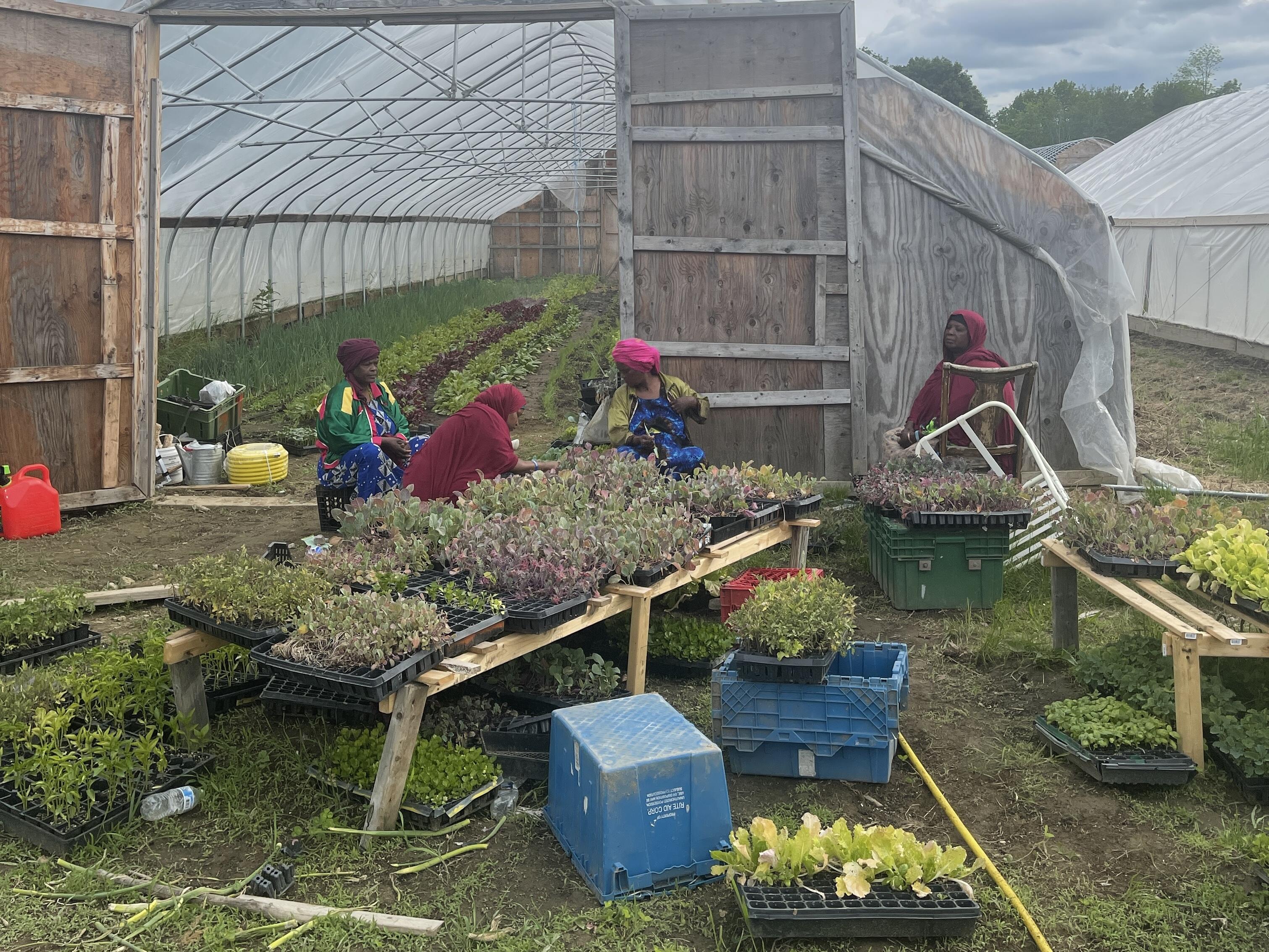
Somali Bantu Refugees and Farmers, gather for a lunch break at the New Roots Farm.


